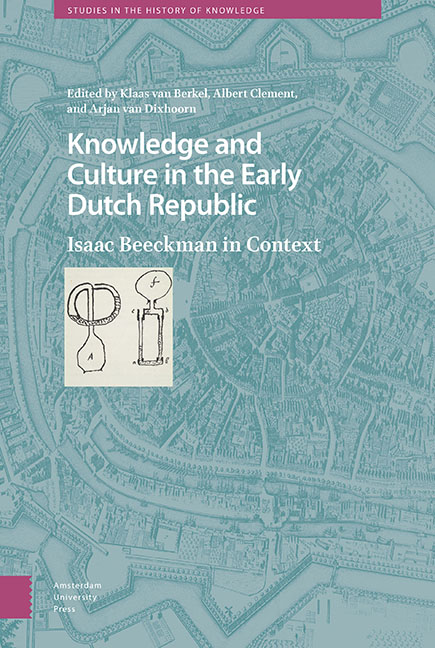3 - Isaac Beeckman at Gresham College in 1668: An Alternative ‘As If’ Scenario
Published online by Cambridge University Press: 07 October 2022
Summary
Abstract
In this chapter Isaac Beeckman is imagined to have lived on to at least 1668 and to have been invited by the Royal Society to come to Gresham College in London and inform its fellows about his friendly yet at times troubled relationship with René Descartes since their first encounter 50 years earlier. The chapter consists of the speech Beeckman is imagined to have given there. The speech, though entirely fictional, is nonetheless based on solidly established, overall well-known historical facts about Beeckman and Descartes, and on the author's own interpretation thereof. The speech centres on the similarities and the differences between the two men's pioneering conceptions of the ‘mechanical philosophy’, and on the issue of priority that Descartes rather obsessively kept raising.
Keywords: Isaac Beeckman, René Descartes, ‘as if’ history, mechanical philosophy, priority dispute
On the final pages of the previous chapter, John Schuster undertook a delightful exercise in ‘as if’ history. In the present chapter I take up the idea by imagining Beeckman to accept an invitation by the Royal Society to detail his relationship with the late René Descartes.
Domini praeclari, Most learned Fellows of the Royal Society for the improvement of naturall knowledge by Experiment (it is, to say that right away, not clear to me how experiments could possibly help us improve our understanding of the natural world).
At the age of 80 back in your country for the third time, it is my honour and my great pleasure to stand in this festive hall at Gresham College and to consider from a variety of viewpoints the topic that you have invited me to address. What are the origins, as I see them, of what you here in Britain have of late accustomed yourself to calling ‘the mechanical philosophy’? To be more specific, the wording of the very flattering letter that your most diligent secretary, Mr. Henry Oldenburg, Esq., has sent me leaves some room for the suspicion that your innocent-sounding question is really aimed at learning how, if asked, I would assess my own scholarly achievement in comparison to that of the man meanwhile known all over Europe as the great pioneer of the mechanical philosophy – my regretted friend, the late René Descartes.
- Type
- Chapter
- Information
- Knowledge and Culture in the Early Dutch RepublicIsaac Beeckman in Context, pp. 51 - 62Publisher: Amsterdam University PressPrint publication year: 2022



